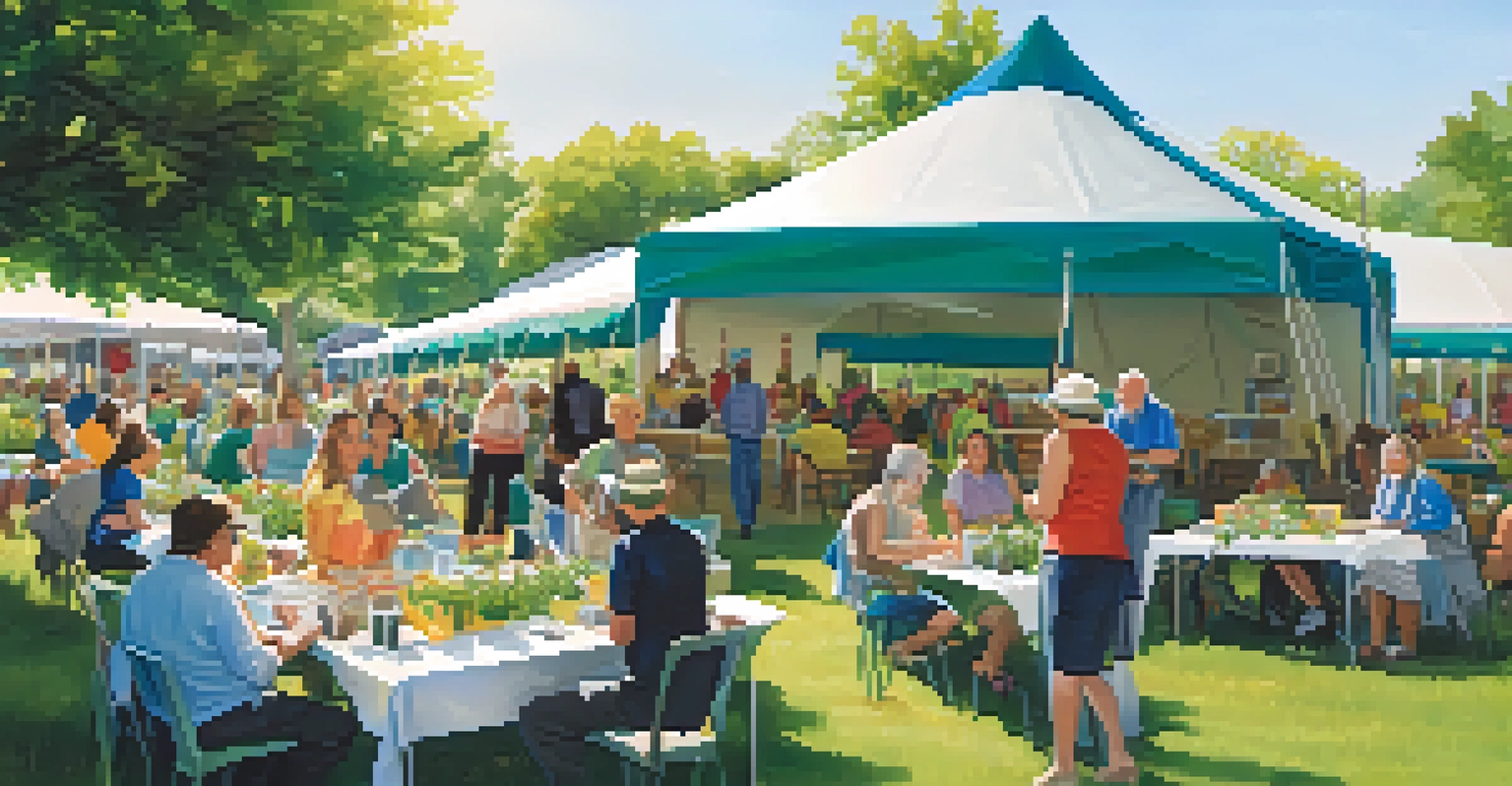Climate Change Effects on Buffalo: What Residents Face

Understanding Climate Change and Its Local Impact
Climate change refers to long-term alterations in temperature and weather patterns. In Buffalo, this manifests as rising temperatures and unpredictable weather events. Residents are experiencing shifts that affect daily life, from hotter summers to milder winters.
Climate change knows no borders. It is a global problem that requires a global solution.
These changes can lead to increased energy consumption, as homeowners rely more on air conditioning during heat waves. Additionally, the frequency of extreme weather events, like heavy snowfall or rain, can disrupt everyday activities and local infrastructure. Understanding these impacts can help residents prepare and adapt.
Community awareness is essential in tackling climate change. By recognizing the challenges posed by climate shifts, Buffalo residents can engage in local initiatives aimed at sustainability and resilience.
Rising Temperatures and Their Effects
Buffalo has seen a noticeable increase in average temperatures over the past few decades. This warming trend affects not just comfort levels but also public health. Higher temperatures can exacerbate respiratory issues and heat-related illnesses, particularly among vulnerable populations.

Moreover, rising temperatures can disrupt local ecosystems, impacting flora and fauna. For example, species that thrive in cooler conditions may struggle to survive, leading to a potential loss of biodiversity in the region. Residents may observe changes in local wildlife and plant life as a direct consequence.
Local Climate Change Effects
Buffalo residents are experiencing rising temperatures and unpredictable weather patterns that directly impact daily life and local infrastructure.
In response, communities are exploring ways to mitigate these effects, such as planting more trees and creating green spaces. These efforts not only help cool urban areas but also enhance the quality of life for residents.
Increased Precipitation and Flood Risks
Climate change is causing shifts in precipitation patterns, leading to heavier rainfall in Buffalo. This increase poses a significant risk of flooding, which can damage homes and infrastructure. Residents often find themselves dealing with water damage and the costly repairs that follow.
The climate crisis is not a political issue, it is a moral and spiritual one. It is also our greatest opportunity to lift global consciousness to a higher level.
Flooding not only affects homes but also impacts local businesses and transportation systems. Streets can become impassable, disrupting daily commutes and deliveries. This unpredictability can create a ripple effect, impacting the local economy and residents' livelihoods.
To combat these risks, Buffalo is investing in improving stormwater management systems. By upgrading infrastructure and creating green flood mitigation strategies, the city aims to protect its residents from the adverse effects of increased precipitation.
Impacts on Local Agriculture and Food Security
Buffalo's agricultural sector is feeling the heat, quite literally. Changes in climate affect growing seasons, crop yields, and food production. Farmers are facing challenges such as droughts and unpredictable weather, which can compromise their harvests.
This instability in local agriculture poses a threat to food security for residents. As locally sourced food becomes scarcer, prices may rise, making it difficult for families to afford fresh produce. The reliance on agricultural imports can also increase vulnerability to global market fluctuations.
Health Risks from Climate Change
Increasing temperatures and poor air quality in Buffalo pose significant health risks, particularly for vulnerable populations.
In light of these challenges, community gardens and urban farming initiatives are gaining popularity. These efforts not only provide fresh food but also foster community engagement and resilience against food insecurity.
Health Risks Associated with Climate Change
The health implications of climate change are profound, particularly for communities in Buffalo. Rising temperatures can lead to heat-related illnesses, while increased humidity creates a breeding ground for mosquito-borne diseases. Residents must be vigilant in protecting their health.
Moreover, poor air quality can worsen respiratory conditions, especially for children and the elderly. As climate change exacerbates pollution levels, residents may experience more frequent asthma attacks and other health issues. It's crucial for the community to be aware of these risks and take proactive measures.
Public health initiatives are essential in educating residents about the effects of climate change on health. By promoting awareness and providing resources, the community can work together to mitigate these risks and improve overall well-being.
Community Initiatives to Combat Climate Change
Buffalo residents are coming together to address climate change through various community initiatives. Local organizations are launching programs aimed at reducing carbon footprints and promoting sustainable practices. From tree planting to recycling drives, every action counts.
Moreover, educational workshops and community forums help raise awareness about climate issues. Residents are learning how to adapt their lifestyles, from energy-efficient home improvements to reducing water usage. Collective action empowers individuals to make a difference.
Community Action is Essential
Collaborative community initiatives are vital in Buffalo for addressing climate change and fostering sustainable practices among residents.
These initiatives not only enhance community cohesion but also foster a culture of sustainability. By working together, Buffalo residents can create a positive impact and inspire future generations to prioritize environmental stewardship.
The Role of Local Government in Climate Action
Local government plays a pivotal role in addressing climate change effects in Buffalo. Through policy-making and strategic planning, city officials are focusing on sustainability and resilience. Initiatives such as expanding public transportation and investing in renewable energy sources are key components of this effort.
Furthermore, engaging with community members ensures that residents' voices are heard in climate discussions. Public meetings and feedback sessions allow citizens to share their concerns and ideas. This collaborative approach strengthens community trust and promotes transparency.

As Buffalo moves forward, continued collaboration between residents and local government is essential. Together, they can create actionable plans that not only address current challenges but also pave the way for a more sustainable future.